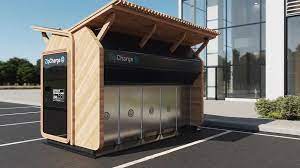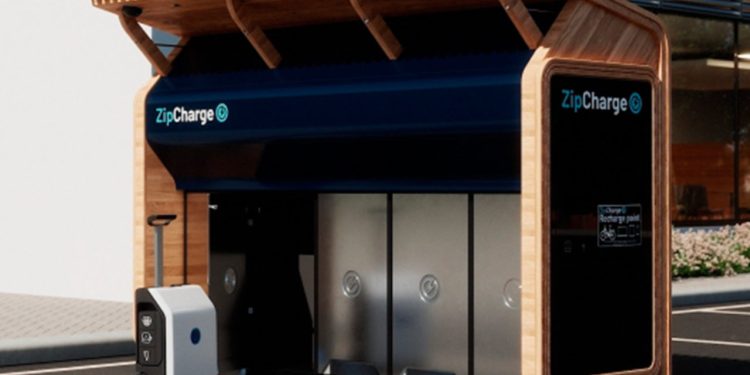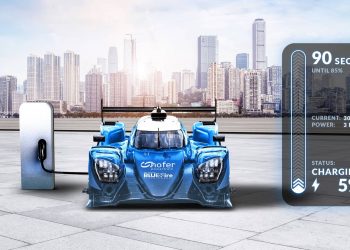During the 26th United Nations Climate Change Conference (COP26), the British electric vehicle charging infrastructure company ZipCharge launched “Go”, a portable charger capable of supplying energy with a power of up to 7.2 kW. These particular characteristics make it possible to recover between 20 and 32 kilometers of autonomy in just half an hour.
To fine-tune details of this technology, the ZipCharge team is developing customized control software and a dedicated mobile application, which will allow users to optimize the operation of the portable EV power bank.
According to the company, this incorporates a suite of security features, including customer authentication and the ability to remotely monitor, track and disable the Go charger from their cell phone, anywhere, thanks to built-in 2G/4G connectivity.
Read also: Eric Granado: The King of Jerez at the MotoE Opening
Following that successful launch, the British company now unveils the GoHub, the world’s first portable charging point for electric vehicles. A very interesting system with multiple practical solutions that could provide an answer to many current problems.
It is an installation made of sustainable materials that is capable of adapting to multiple needs and solutions. From being a charging point for the aforementioned portable batteries to becoming a battery recovery center for urban electric vehicles such as scooters or bicycles.

How does it Work?
In order to carry out the operation of the charging point, ZipCharge achieves energy independence by installing solar panels and wind turbines on the roof of the infrastructure.
Through the systems, the portable point is able to operate remotely, although it can also be connected to the power grid to extend its services. It should be noted that the energy that is not being used is stored in ZipCharge Go batteries at the end of their life cycle, with up to 100 kWh of capacity. A way of reusing elements with a circular approach.
The company also launched a pay-as-you-go proposal. With a minimum expenditure of one euro, customers will be able to employ the station’s services, either by freeing up a portable battery to charge a motorcycle or a car, or by enjoying up to 4 kWh of energy for recharging urban electric vehicles. ZipCharge aims to deploy a total of 100,000 GoHub stations by 2030.
Written by I Jhonattan González












